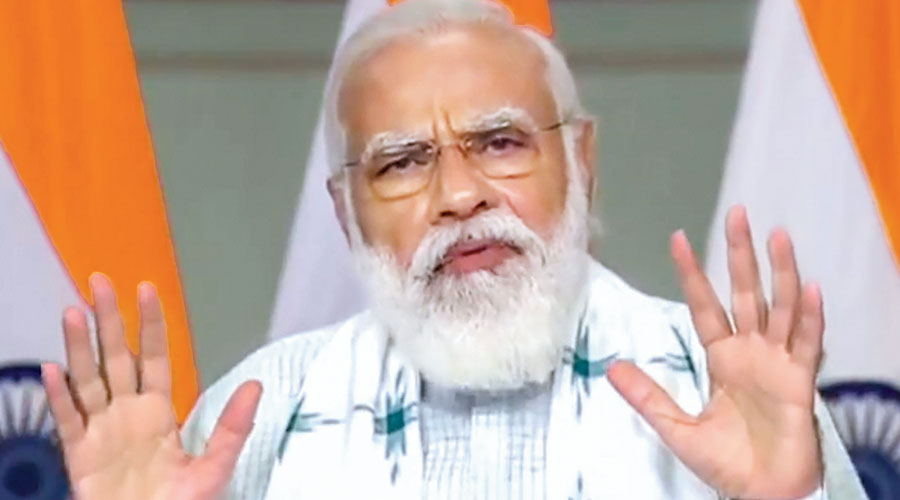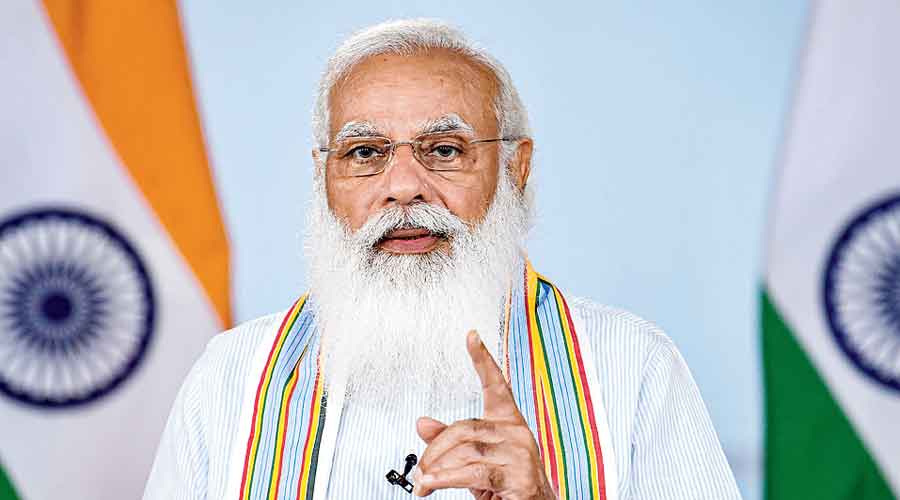Prime Minister Narendra Modi tweeted on Friday, the 46th anniversary of the proclamation suspending civil liberties across India: “The Dark Days of Emergency can never be forgotten.”
Few will disagree — Modi and his government are serving up reminder after reminder without pause to keep the memories fresh.
Hitting out at the Congress for trampling on the democratic ethos, Modi tweeted: “The period from 1975 to 1977 witnessed a systematic destruction of institutions. Let us pledge to do everything possible to strengthen India’s democratic spirit, and live up to the values enshrined in our Constitution.”
This is how Modi has been doing “everything possible” to accomplish his avowed mission:
⚫ Journalist Siddique Kappan has been kept in detention for the past 263 days. He was arrested last October while he was travelling in Uttar Pradesh to do a follow-up report on the gang rape and murder of a Dalit teen that had embarrassed the Yogi Adityanath government.
Earlier this month, a sub-divisional magistrate dropped the charge of breach of peace against Kappan who is lodged in a jail in Mathura. Sedition and other charges are pending against him.
⚫ Two days ago, the former Supreme Court judge, Justice Madan B. Lokur, accused the central government-controlled Delhi police of “violating every canon of natural justice and fair play” in dealing with three student activists and anti-CAA protesters who were granted bail only last week. Natasha Narwal, Devangana Kalita and Asif Iqbal Tanha were in jail since May last year, booked under a host of charges including the anti-terror law UAPA.
⚫ Nine months ago, Justice Lokur had deplored how free speech was being tackled with an “iron hand” and thousands were being jailed and accused of sedition for speaking out against the government.

⚫ For 320 days, amid an “iron hand” treatment and vilification, farmers have been protesting on Delhi’s borders against three laws railroaded through Parliament. Last winter, the protest had been described as the largest in history.
⚫ A year and a half ago, the government did little to address the concerns of protests — led largely by poor Muslim women — against a new citizenship law that is accused of discriminating between people on the ground of religion, and therefore violating the Constitution.
⚫ Two-and-a-half years ago, four Supreme Court judges publicly accused the then Chief Justice of assigning sensitive cases to favoured benches.
⚫ Social activists — some of them aged and severely disabled or ailing — are in detention, some students are being hounded under sedition and anti-terror laws, investigating agencies are being unleashed on critics and political opponents, and attempts are being made to browbeat conventional and social media organisations.
⚫ When climate activist Disha Ravi was picked up on the sedition charge, a Delhi court, which granted her bail, had said: “There is not even an iota of evidence brought to my notice connecting the perpetrators of the violence on January 26, 2021, with the said PJF (Poetic Justice Foundation) or the applicant/ accused (Ravi).”
The upshot: The world’s largest democracy has turned into an electoral autocracy, the V-Dem Institute based in Sweden said in March.
Footnote: Indira Gandhi had publicly apologised for the Emergency, and her grandson Rahul Gandhi had said last March: “I think that was a mistake. Absolutely, that was a mistake. And my grandmother said as much.”












